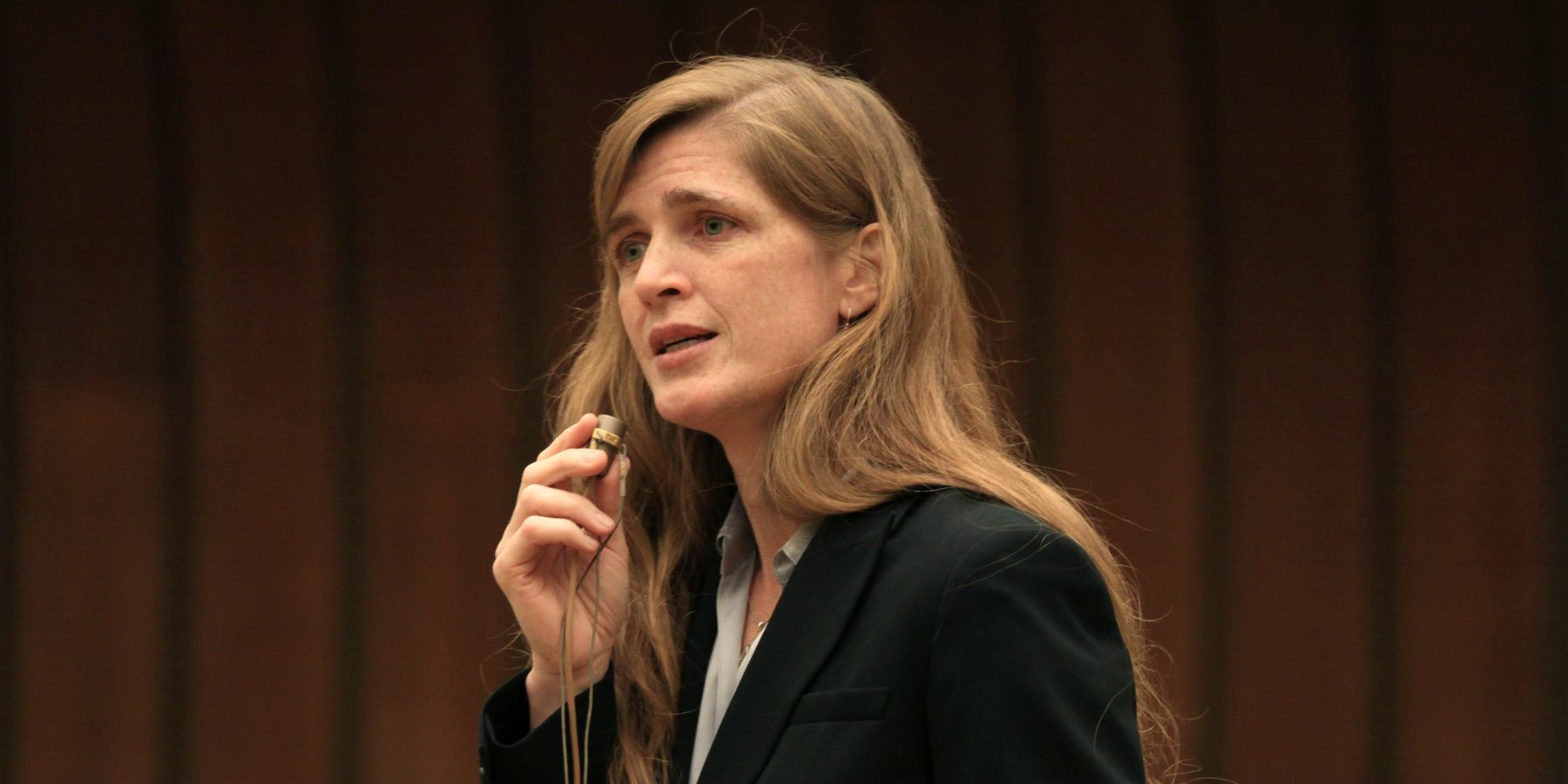USAID administrator Samantha Power said on Wednesday that the humanitarian situation in Gaza is “worse now than ever before” and acknowledged that “Israeli military operations & closed crossings” were the primary impediments to the delivery of American aid.
The post on X followed comments by Power that although Israeli operations in Rafah were “limited,” the “catastrophic consequences” of Israeli military actions in southern Gazan city were nonetheless taking place.
It is the latest and among the most direct examples of the Biden administration admitting that Israel is violating both international and U.S. law without saying so directly. As a result their policy remains largely unchanged.
Section 620I of the Foreign Assistance Act mandates that, “no assistance shall be furnished … to any country when it is made known to the President that the government of such country prohibits or otherwise restricts, directly or indirectly, the transport or delivery of US humanitarian assistance.”
Lawmakers who have been critical of Biden’s “blank check” approach have identified the blocking of humanitarian assistance as the most obvious example of Israeli violations of U.S. law, and therefore as the reason why Washington should cut off arms sales to Tel Aviv.
But the administration has been unmoved. The NSM-20 report, a result of this pressure from Congress, ultimately concluded that the State Department “does not currently assess that the Israeli government is prohibiting or otherwise restricting the transport or delivery of U.S. humanitarian assistance within the meaning of section 620I,” and that consequently no change in policy was required.
Administration officials told RS shortly before the release of that report that experts and staffers would possibly be willing to resign if the report asserted that Israel was complying with the law, since the blocking of aid has been so blatant. That became a reality this week when Stacy Gilbert, an adviser in the State Department’s bureau of population, refugees and migration, publicized her recent resignation. She called the NSM-20 report “patently false” and said that the department “could have AI write the report because it is not informed by reality or context or the informed opinions of subject matter experts.”
The administration’s own actions are also an acknowledgement of how difficult it has been for the U.S. to distribute aid in Gaza. The $320 million humanitarian pier, which was intended to be the Biden administration’s attempt to overcome the difficulties to distribute aid, has been a failure. Less than two weeks after it became operational — in which it delivered fewer than 60 aid trucks of aid, very few, if any, of which were distributed in Gaza — the pier was towed away and forced to suspend operations due to inclement weather .
There is evidence that U.S. pressure can push Israel to make some changes. After the Israeli strike that killed seven World Central Kitchen staffers led Biden to threaten a change in U.S. policy, there was a small uptick in the aid corridors opened and trucks allowed in. But even at the time, Power warned that famine was likely underway in parts of Gaza, and the entire population was at risk of facing famine. And now she says that partners on the ground indicate that the situation is even worse than it was before the WCK staffers were killed, and no change in U.S. policy appears to be forthcoming.
- The undeniable emptiness of the ‘Responsibility to Protect’ ›
- Samantha Power: Aid workers say crisis in Gaza 'unprecedented' ›
- How Israelis admit to war crimes in Gaza without saying it | Responsible Statecraft ›
- 'Humanitarian superstar' Samantha Power admits Gaza is a loss | Responsible Statecraft ›
- The desperation of Gaza famine denialism | Responsible Statecraft ›
















